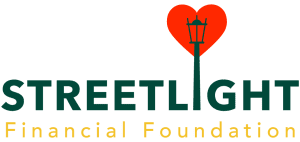In today’s dynamic economic landscape, achieving a healthy financial life is more crucial than ever. Financial education is the cornerstone of a secure financial future, empowering individuals to make informed decisions and navigate the complexities of personal finance. In this blog, we will explore the essential elements of financial education that pave the way for a good financial life.

1. Understanding the Importance of Financial Education
Financial Education for a Healthy Financial Outlook
A sound financial education equips you with the knowledge to manage your finances effectively. It’s about understanding how to save, invest, and spend wisely. With the rise of online scams and the complexity of financial products, being financially literate helps you to identify risks, avoid pitfalls, and make decisions that contribute to a healthy financial state.
2. Building Blocks of Financial Education
Crafting a Budget: The Foundation of a Healthy Financial Life
Budgeting is the primary step towards a Healthy Financial life. It involves tracking your income and expenses, understanding your spending habits, and setting realistic financial goals. A well-structured budget helps you to live within your means, avoid debt, and save for the future.
Investing in Knowledge: Understanding Financial Products
Understanding various financial products, such as stocks, bonds, mutual funds, and retirement accounts, is crucial. This knowledge enables you to diversify your investments, mitigate risks, and optimize returns, contributing to a healthy financial future.
3. Adopting Healthy Financial Habits
Debt Management: A Key to Financial Health
Effective debt management is critical for maintaining financial security. It involves understanding the cost of borrowing, managing credit cards, and prioritizing high-interest debts. Learning how to manage debt responsibly ensures that it does not hinder your financial goals.
Emergency Savings: Your Financial Safety Net
An emergency fund is an essential aspect of a healthy financial plan. It provides a buffer against unforeseen expenses, such as medical emergencies or job loss, and reduces the need to rely on high-interest credit options.
4. Staying Informed and Adaptable
Navigating Economic Changes for a Healthy Financial Future
The economic environment is constantly changing. Staying informed about market trends, interest rates, and new financial regulations helps you to adapt your financial strategies accordingly. This adaptability is key to maintaining a healthy financial life in the long term.
Leveraging Technology for Financial Health
Utilizing financial management tools and apps can enhance your ability to maintain a healthy financial life. These tools offer convenient ways to track expenses, set budgets, monitor investments, and plan for retirement.
Empowering Through Financial Education
In conclusion, financial education is not just about acquiring knowledge; it’s about applying that knowledge to make sound financial decisions. By understanding the basics of budgeting, investing, debt management, and staying informed, you can lay the groundwork for a healthy financial life. Remember, financial education is a lifelong journey, and staying committed to learning and adapting is the key to achieving financial security and wellbeing.

Contact Us! We Understand Finance And Trust.
Our Streetlight Financial Offices in Massachusetts and Vermont.











